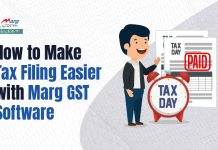Goods and Services Tax (GST) is an indirect tax system in India that was implemented on July 1, 2017. It replaced all the indirect taxes like excise duty, service tax, and Value Added Tax (VAT). GST is levied on the supply of goods and services, including cars.
GST on Cars
GST is applicable to all types of vehicles in India, including cars. The GST on cars varies depending on the type of car, its price, and the state in which it is registered.
The GST rate for cars in India ranges from 12% to 28%. The 12% rate is applicable to electric vehicles, while the 18% rate is applicable to small cars (less than 4 meters in length) with an engine capacity of up to 1200 cc. Mid-sized cars (between 4 and 5 meters in length) with an engine capacity of up to 1500 cc attract a GST rate of 18%. Large cars (more than 5 meters in length) with an engine capacity of more than 1500 cc and SUVs are taxed at 28%.
In addition to the GST, cars are also subject to other taxes like road tax, registration fee, and insurance. These charges vary from state to state.
GST Benefits for Car Buyers:
The introduction of GST has simplified the taxation system and made it easier for car buyers to understand the tax structure. GST has replaced multiple taxes with a single tax, reducing the tax burden on car buyers.
Another benefit of GST for car buyers is the reduction in the cost of cars. Under the pre-GST system, car manufacturers had to pay multiple taxes at different stages of the supply chain, which increased the cost of the car. With GST, the tax is levied only on the final value of the product, resulting in a reduction in the overall cost of the car.
GST has also led to increased transparency in the pricing of cars. Earlier, car manufacturers used to charge different prices for the same car in different states, taking advantage of the differences in tax rates. With GST, the tax rate is the same across the country, and car manufacturers have to adhere to a uniform pricing system.
GST On Other Products:
GST and Used Cars:
GST is not only applicable to new cars but also to used cars. The GST on used cars is calculated based on the margin scheme. Under this scheme, the GST is levied only on the profit margin of the dealer and not on the entire selling price. The dealer has to pay ST on the difference between the selling price and the purchase price of the used car. This scheme is applicable only if the dealer is not claiming any input tax credit.
GST and Luxury Cars:
Luxury cars and SUVs attract a GST rate of 28%, which is the highest rate among all categories of cars. Luxury cars are defined as cars with a price tag of more than Rs. 20 lakhs and an engine capacity of more than 1500 cc. The high GST rate makes luxury cars more expensive, and buyers have to pay a considerable amount of tax on these vehicles.
GST and Electric Cars:
Electric cars have become more popular in recent years due to their lower running costs and environmental benefits. The government has incentivized the purchase of electric cars by reducing the GST rate on these vehicles to 12%. The lower tax rate makes electric cars more affordable and encourages more people to adopt this eco-friendly mode of transportation.
Conclusion:
In conclusion, GST has had a significant impact on the pricing and taxation of cars in India. The introduction of GST has made the tax system more transparent and reduced the overall tax burden on car buyers. The different tax rates for different categories of cars, like small cars, mid-sized cars, luxury cars, and electric cars, reflect the government’s efforts to incentivize certain types of vehicles while discouraging others. Overall, GST has made it easier for people to understand the tax structure and has led to a more uniform pricing system for cars across the country.
Frequently asked questions (FAQs) about GST on cars in India:
Q:1 What is GST on cars in India?
A: GST on cars in India is a tax levied on the supply of cars. The GST rate for cars ranges from 12% to 28%, depending on the type of car, its price, and the state in which it is registered.
Q:2 What are the different GST rates for cars in India?
A: The GST rates for cars in India vary based on the type of car, its price, and the state in which it is registered. The GST rate for electric cars is 12%, for small cars with an engine capacity of up to 1200 cc and length less than 4 meters, it is 18%, and for mid-sized cars with an engine capacity of up to 1500 cc, it is also 18%. Large cars with an engine capacity of more than 1500 cc and SUVs attract a GST rate of 28%.
Q:3 Is GST applicable to used cars in India?
A: Yes, GST is applicable to used cars in India. The GST on used cars is calculated based on the margin scheme, where the tax is levied only on the dealer’s profit margin and not on the entire selling price.
Q: 4 How has GST impacted the pricing of cars in India?
A: The introduction of GST has made the tax system more transparent and reduced the overall tax burden on car buyers. The reduction in the cost of cars has made it more affordable for people to own a car. The uniform pricing system has increased transparency in the pricing of cars.
Q:5 What is the GST rate for luxury cars in India?
A: Luxury cars and SUVs in India with a price tag of more than Rs. 20 lakhs and an engine capacity of more than 1500 cc attract a GST rate of 28%.
Q:6 What is the GST rate for electric cars in India?
A: Electric cars in India attract a lower GST rate of 12%. The lower tax rate makes electric cars more affordable and encourages more people to adopt this eco-friendly mode of transportation.
Q:7 Are there any additional taxes on cars in India besides GST?
A: Yes, there are additional taxes on cars in India besides GST. These include road tax, registration fee, and insurance, and these charges vary from state to state.
Q:8 Can I claim input tax credit on GST paid on a car?
A: If you purchase a car for business purposes, you may be able to claim input tax credit on the GST paid on the car. However, the amount of input tax credit that you can claim may be limited based on certain conditions. It is advisable to consult with a tax professional to understand the specifics of input tax credit on a car.






